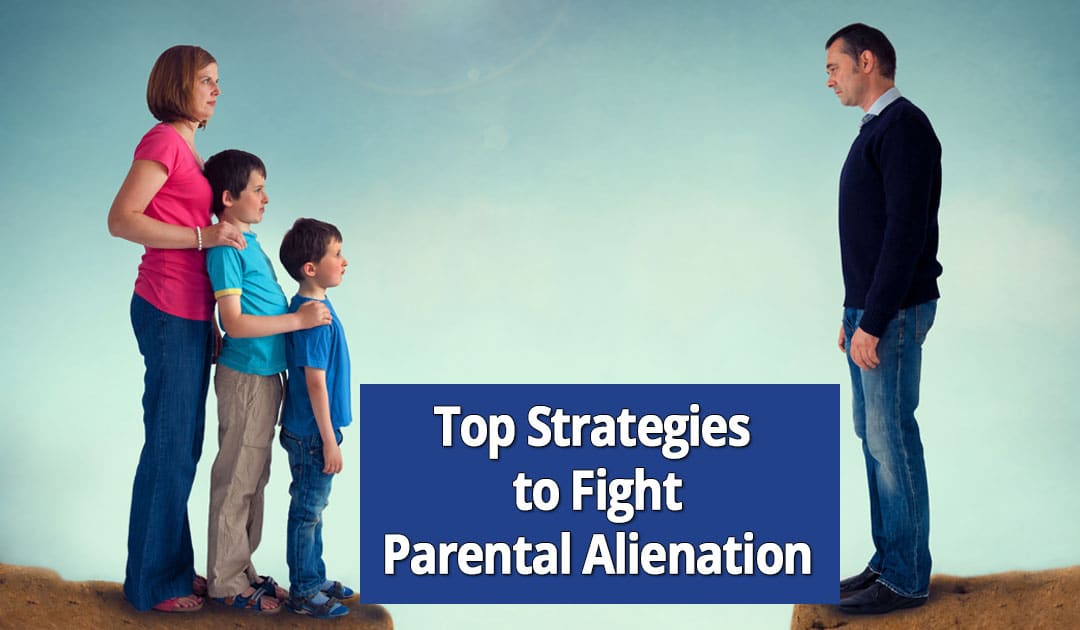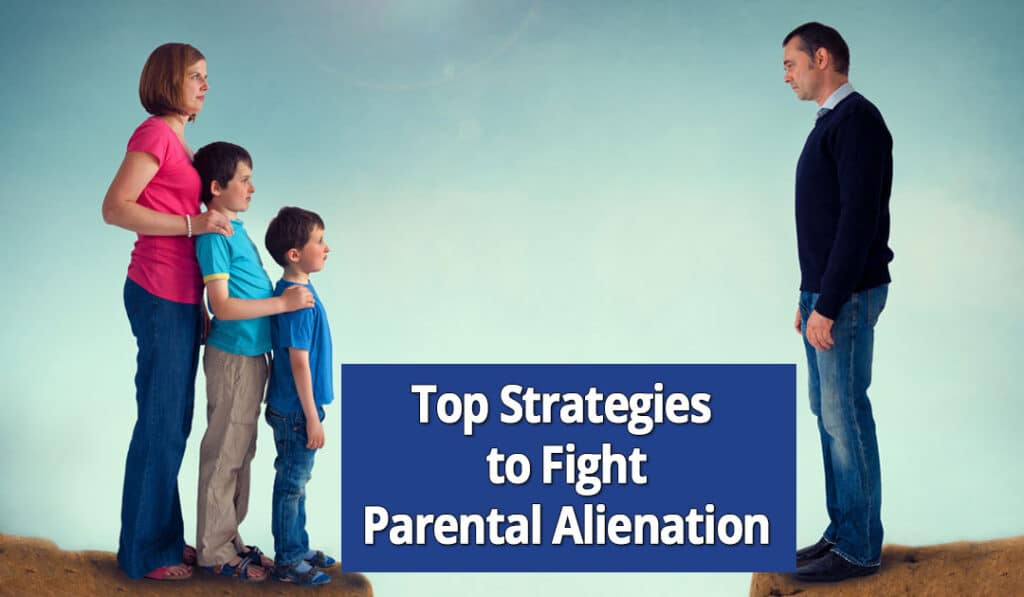Top Strategies to Stop Parental Alienation on Long Island, NY

Divorce is always difficult for all involved, but it can be hardest on the children who have no say in what is transpiring between their parents. While the divorce may be inevitable, parents can go the extra mile to work together to co-parent their children with time, effort, and dedication. Ideally, parents will put their children, and their needs, first and foremost.
Not all divorces go this way though, and many turn contentious. When this happens and children are involved, one parent may attempt to turn their children against the other parent. Regardless of whether or not the other parent is successfully ostracized, it can have devastating consequences on the child and the family. This phenomenon, known as “parental alienation”, can tear families apart and leave everyone involved feeling hurt and alone.
If you’re concerned that your family might be heading down this destructive path, it’s important to know how to stop parental alienation before it starts. Early intervention is key, so pay attention to signs that your child is being manipulated by one parent against the other. And if you’re already caught in the middle of an alienation dynamic, there are still things you can do to protect yourself and your relationship with your child. Here’s what to know.
The Problem with Parental Alienation
Parental alienation occurs when one parent attempts to undermine the relationship between the child and the other parent. This behavior can take many forms, from badmouthing the other parent, lying about them and their actions or motivations, to outright denying them access to the child.
The consequences of this type of behavior are severe. Children who are subjected to parental alienation manipulation can suffer from emotional distress, behavioral problems, and difficulties forming and maintaining relationships themselves as adults. In extreme cases, parental alienation can lead to estrangement, which means the child completely cuts off contact with the targeted parent.
Early Intervention Is Key to Stopping Parental Alienation
The earlier you can intervene in parental alienation, the better. By catching the behavior early, you may be able to prevent the alienation from becoming more severe and damaging.
Talk to your child about their relationship with the other parent. Ask them how they feel and encourage them to express any concerns they have. Although this may be difficult in a contentious contested divorce where you angry and fighting with your ex, it’s important to put the child’s needs ahead of your own and encourage a healthy relationship between your child and the other parent, regardless of how you feel about them. This includes making sure they’re spending time together, that you’re talking positively about the other parent, and constructively resolving conflicts.
What Happens If You’re Being Alienated?
If you think that you might be a victim of parental alienation, there are a few key signs to look out for. First, see if there is a sudden and unexplained change in your relationship with your child. If you used to have a close, loving relationship and now your child seems distant or even hostile, this could be a sign the other parent is succeeding at parental alienation of your relationship.
Other signs include:
- Your child repeating negative things about you that they couldn’t possibly know on their own
- Your child refusing to spend time with you or telling you that they don’t want to see you
- Your child bad mouthing you to other family members or friends
- Your child making false accusations against you
Strategies To Stop Parental Alienation
Parental alienation can be emotionally devastating to the one being alienated and the child. If possible, try to have an adult conversation with the other parent about what’s going on and how it’s negatively affecting your child and their future. It’s important to stay calm and avoid accusing them of anything. Instead, simply express your concerns and ask if there’s anything they can do to help improve the situation.
Counseling may help you deal with the pain and anger you’re feeling while also giving you practical tools for dealing with the situation. It may also help to talk to someone who’s been through something similar. There are many online forums and support groups for parents dealing with parental alienation. Talking to others who understand what you’re going through can help ease the feelings of isolation and loneliness that often come with this type of situation.
In some cases, legal action may be necessary. If there is evidence that the other parent is deliberately trying to turn your child against you, a restraining order may be appropriate. Or, you may benefit from filing for full custody.
Call an Experienced Long Island, NY Divorce Lawyer for Help with Parental Alienation Issues Today
It’s important to remember that parental alienation is a serious problem that can have lasting consequences for both children and parents. If you’re concerned about parental alienation, the best thing you can do is to seek help from a professional as soon as possible.
Contact Long Island divorce lawyers Hornberger Verbitsky, P.C. for a free consultation to discuss your case and legal strategy by dialing 631-923-1910 or fill in the short form on this page.
GET YOUR FREE CONSULTATION TODAY
Call 631-923-1910 or fill in the form below
Get your complimentary consultation and case evaluation with our experienced attorneys today.
Your attorney will describe the many options available and determine together which is the right solution for you. By the end of this conversation, we’ll all understand how we can best help you to move forward.
No Cost or Obligation
There is no cost or obligation for this initial consultation. It is simply an opportunity for us to get to know each other, answer your questions and learn if Hornberger Verbitsky, P.C. is right the right law firm for you. Give us a call at 631-923-1910 or fill in the short form below for your free consultation and case evaluation.
All Fields Are Required
About the Author
Robert E. Hornberger, Esq., Founding Partner, Hornberger Verbitsky, P.C.
- Over 20 years practicing matrimonial law
- Over 1,000 cases successfully resolved
- Founder and Partner of Hornberger Verbitsky, P.C.
- Experienced and compassionate Long Island Divorce Attorney, Family Law Attorney, and Divorce Mediator
- Licensed to practice law in the State of New York
- New York State Bar Association member
- Nassau County Bar Association member
- Suffolk County Bar Association member
- “Super Lawyer” Metro Rising Star
- Nominated Best of Long Island Divorce Attorney four consecutive years
- Alternative Dispute Resolution Committee Contributor
- Collaborative Law Association of New York – Former Director
- Martindale Hubbell Distinguished Designation
- America’s Most Honored Professionals – Top 5%
- Lead Counsel Rated – Divorce Law
- American Institute of Family Law Attorneys 10 Best
- International Academy of Collaborative Professionals
- Graduate of Hofstra University School of Law
- Double Bachelor’s degrees in Philosophy, Politics & Law and History from SUNY Binghamton University
